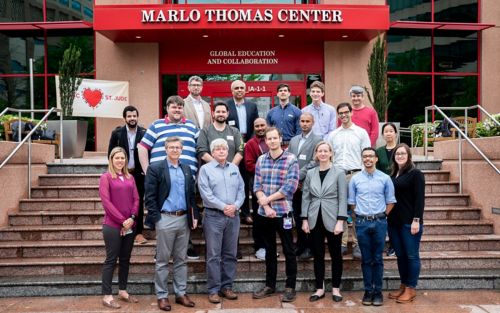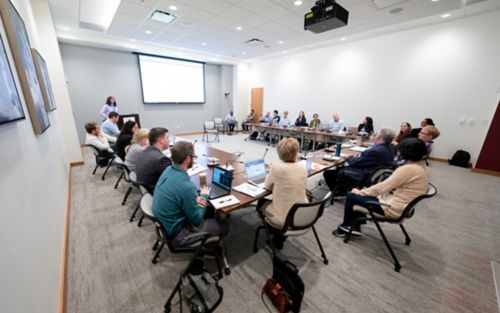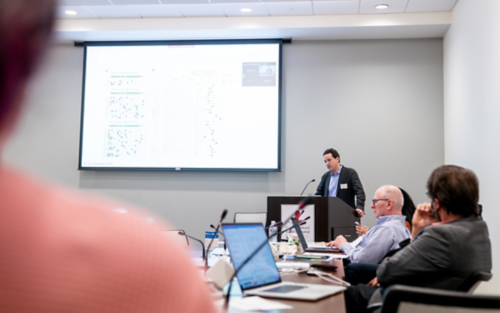St. Jude Family of Websites
Explore our cutting edge research, world-class patient care, career opportunities and more.
St. Jude Children's Research Hospital Home

- Fundraising
St. Jude Family of Websites
Explore our cutting edge research, world-class patient care, career opportunities and more.
St. Jude Children's Research Hospital Home

- Fundraising
St. Jude Research Collaboratives
Global teams of accomplished scientists designed to collaboratively address complex scientific questions with transformative potential
About the program
For decades, scientists at St. Jude Children’s Research Hospital have made steady progress in finding cures for children with catastrophic diseases. However, it is increasingly clear that team science approaches can speed discovery by filling gaps in our knowledge due to the complexity and diversity of pediatric cancers and other life-threatening conditions. Our institution aims to be a nucleating force for collaboration, harnessing external expertise by funding the world’s top scientists in key specialties to collaborate on areas we have identified as top priorities.

As a key element of our strategic vision, St. Jude has formally established the St. Jude Research Collaboratives Program. These consortia leverage renowned scientists' and clinicians' insights and capabilities to create collaborative teams committed to tackling groundbreaking projects that accelerate scientific research to pursue cures for pediatric diseases. We have funded investigators from across the country, at leading institutions, to join collaborative teams to explore complex problems such as cancer epigenetics and fundamental cell biology, gene therapy for sickle cell disease, and the application of implementation science to several aspects of childhood cancer.
St. Jude collaboratives are initiated as proposals developed by St. Jude faculty, in partnership with expert scientists from other institutions — all trailblazers in their respective fields. St. Jude’s investment in these collaboratives ensures that the brightest minds have the resources to ask paradigm-shifting questions, and the community to support continued discovery efforts. Proposals are reviewed and selected by some of the institution’s most accomplished senior researchers. There are currently five funded collaboratives, but given the quality and impact of the existing collaboratives via the new Strategic Plan, St. Jude is looking to expand the program substantially.




